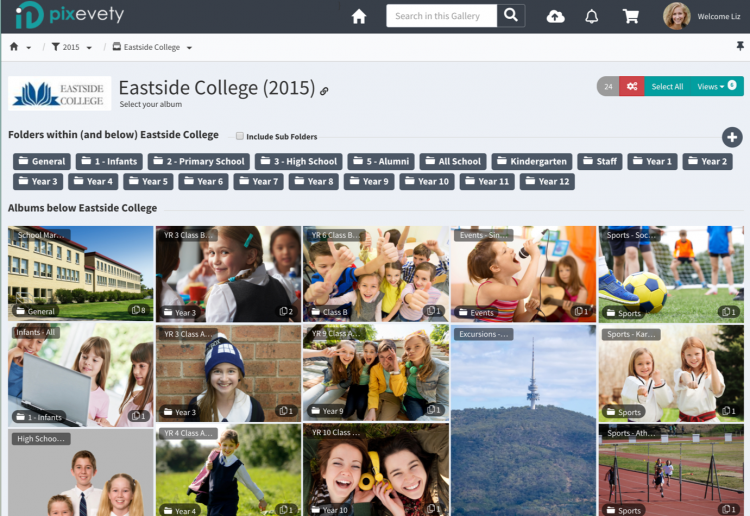The Facebook post was designed to elevate the profession of teaching but it backfired and highlighted issues of image consent.
The hero image depicted a teacher surrounded by young boys of Indigenous appearance marked with white body paint and wearing red bandannas. The caption read: “I always had a soft spot for the trouble makers, the misunderstood, the kid that everyone thought wouldn’t make it.”
Teach Queensland thought it was doing to right thing by showing an interesting photo of a teacher and her students but was unprepared for the backlash that entailed. Academic Dr Chelsea Bond pointed out that the image reinforced negative stereotypes as it implied that Indigenous boys are trouble makers and less likely to ‘make it’ and also had an additional argument against its use – one of the boys was her son and she had not given permission for Teach Queensland to use it.
In fact, the organisation had breached its duty of care, and it’s a lesson parents should learn when dealing with educational institutions such as schools and childcare centres.
What is duty of care?
Duty of care, with regard to organisations, is an assurance that personal information – including photographs and recordings – shared by students and their caregivers is kept secure, well-protected and private.
Many organisations struggle with the balance between upholding this duty of care and their need to promote and market themselves, whether it’s something like Teach Queensland’s Facebook post or updating the world with student achievements and activities through media such as prospectuses.
The key here is consent. Parents should be asked what’s appropriate in terms of use of their child’s image and the institution should be able to manage these permissions as well as keep the resulting data private and secure.
The image consent checklist
Fortunately, more and more educational institutions are asking parents for consent before taking and using photographs of their children. However, not all permissions processes are well structured.
Here’s a checklist of questions to ask yourself when an organisation seeks consent:
Is my image consent informed?
The institution should be able to give you details of who can take photos, what kind of photos can be taken and where the photos can be published. If they are vague about these elements, you’re not fully informed.
Who is permitted to take photographs? This might be all staff or particular staff members, or even select students, for example those who contribute to a student newsletter.
What kind of photographs are allowed? You might request that no full-face photos of your child be taken, or that the photographer avoid certain identifying details such as religious iconography or particular attire such as your child in swimwear at the swimming carnival.
Where are the photographs allowed to be published? You might be fine with the school newsletter publishing your child’s photo, but what about the childcare Instagram feed or the school website?
Is my image consent active and voluntary?
Consent needs to be ‘opt in’ rather than ‘opt out’, which means the school or childcare centre should not assume that you give consent unless otherwise informed that you withhold permission. They must actively ask for permission.
Is my image consent unconditional?
You should not be coerced into giving permission, for example, it is wrong if a school or childcare centre says your child cannot enrol unless you give consent. This is considered a ‘condition of entry’ and is actually discriminatory. Some children have a very good reasons why they cannot be photographed, for example children in foster care or those involved in custody cases.
If the centre or school requires images for certain functions, for example to identify students at roll call or for medical purposes, these conditions should be clearly and visibly stated in a school’s Collection Statement or Privacy Notice.
Can I give different types of image consent?
Some organisations may bundle permissions into an ‘all or nothing’ mass, but you should be able to consent to different uses separately. For example, you may allow your child’s image to be used for student identification and medical purposes but may want to opt out of marketing uses.
If you answered ‘yes’ to all these questions, then the school or childcare centre has good consent processes in place.
Consent is an incredibly important step to control your child’s privacy. If the school or childcare centre disregards this aspect, they are in breach of their duty of care and you are right to feel they are not treating the issue seriously. Don’t be afraid to ask about their permissions processes so you can feel secure about their ability to protect your child’s details and avoid a situation where you see your child on a post that misrepresents them to the world.
About Colin Anson, CEO and co-founder of pixevety:
Colin Anson is a digital entrepreneur, and the CEO and co-founder of child image protection and photo storage solution, pixevety.
In 2012, Colin saw an opportunity to create a unique business within his area of passion, photography. He witnessed first-hand the potential risks and harm the mismanagement of photos can have on children. And he became an advocate for protecting every parent’s right to determine how their child’s photo is used, and protecting every child’s right to safety and digital privacy. After learning of the minefield of privacy laws and the daily stress for schools in managing and sharing the photos of every single student, Colin decided to do something about it. And pixevety, a privacy-centric photo management platform was born.






















-

-
-
mom268263 said
- 29 Nov 2020
-

-
-
mom111059 said
- 30 Jun 2020
-

-
-
mom462038 said
- 06 Apr 2020
-

-
-
mom81879 said
- 15 Feb 2020
-

-
-
BellaB said
- 26 Jan 2020
-

-
-
ThisIsMe said
- 16 Jan 2020
Post a comment8:29 am
2:19 pm
11:23 am
9:39 am
7:21 pm
2:02 pm
To post a review/comment please join us or login so we can allocate your points.